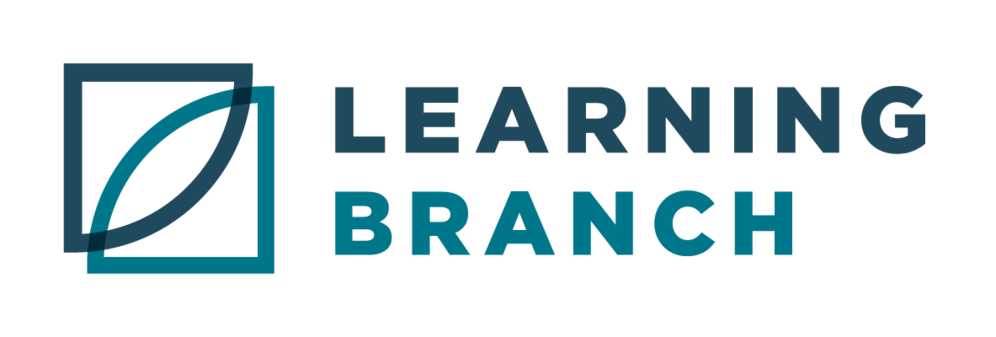"The course helped me communicate better with other healthcare professionals. It helped me step out of my comfort zone and try new things in communications."
- Health Unit Coordinator student, Vancouver Community College
"This course is really challenging for me,

but I really enjoyed it and I've learned a lot. It's very useful because it is related to the job and health science..." student of Communication Skills for Health Care Professionals - December 2013
An instructional program like Learning Branch Communication Skills for Health Care Professionals is essential in light of the growing diversity of healthcare employees and the increasing complexity of their jobs. Powerful features of this program are: fully online and self-paced, allowing students to record their own voices and compare to the model.
The Communication for Health Care Professionals lessons model appropriate communication techniques – and sometimes inappropriate for contrast—in a variety of health care settings. Students practice their skills by choosing communication strategies, formulating, and then recording their responses. The scenarios, which include Overcoming Communication Barriers, Assertiveness on the Phone, and Showing Empathy, present realistic situations that any health care professional needs to handle. A new feature will allow instructors or classmates to listen to students’ recordings and then score the responses or make online suggestions.
I would strongly recommend the Learning Branch Communication Skills for Health Care Professionals program as valuable for any course in which health care communication is addressed.
Ann Rackl ESL/Basic Skills Instructor for Nursing Assistant Certified Program,
South Seattle Community College http://www.southseattle.edu/
Kwantlen Polytechnic University, Vancouver, July 2013
"I like this course. What I learned from this course is not just about communication skills, in addition, this course helps me to understand deeply about culture. "
Teaching Communication and Cultural Awareness: An Online Supplementary Curriculum, presented by Jane Forward of Vancouver Community College and Patricia Macleod of LearningBranch.
Sat May 24th, 9am in room 3625 at Kwantlen Polytechnic University, Richmond BC
A report on teaching socio-cultural competencies and skills to health care and business professionals using adjunct curriculum that is online and interactive.
Read the PDF of the presentation here:
Look for LearningBranch in the publishers' area
http://www.bcteal.org/conferences/2014-annual-conference
Kwantlen Polytechnic University, Richmond BC
 Come and see us at the ICCH, Montreal Sept 29-Oct 2, 2013 Organized by the American Academy on Communication in Healthcare. Visit ICCH site for more information.
Come and see us at the ICCH, Montreal Sept 29-Oct 2, 2013 Organized by the American Academy on Communication in Healthcare. Visit ICCH site for more information.
"repeated practice with realistic, natural English in a healthcare setting..."
CASE STUDY
Using Communication Skills for Health Professionals
Date: July 2, 2013
Author: Karen Brooke, English Instructor, Vancouver Community College, Vancouver Canada
What is VCC’s mission?
Vancouver Community College serves a diverse urban community by providing excellent programs and services that prepare learners for ongoing education, direct entry into employment, career advancement and greater participation in the community.
What does the PACE department do? Who are the students and what needs do they have?
The PACE department helps students develop the language and intercultural skills necessary to participate in the workplace. Many of our students are foreign trained professionals who need only to improve their language skills. Others need to recertify, and some decide on a career change that requires further education.
What are Socio-Cultural Competencies and why are they important?
Socio-Cultural Competencies help students integrate into the North American workplace. Every culture has unwritten rules about how social interactions typically proceed, and even immigrants with very good English may worry that they are not fitting in. Socio-Cultural Competencies give students a road map of how to navigate challenging workplace interactions like refusing a request and giving negative feedback to a colleague in a way that is appropriate to the contemporary North American workplace.
What new curriculum did you try using?
Communication Skills for Health Professionals by The LearningBranch. The first module is focused on Patient-Centred Communication and consists of 10 lessons such as Building Relationships, Empathy and so on. Each lesson presents one scenario between a clientand provider and covers one or more Socio-Cultural Competencies and related communication skills.
Students have an opportunity to learn about and practice appropriate language related to skills such as Active Listening, Small Talk, Assertiveness etc.
How did you incorporate it into the curriculum? Did you use it in class? Online at home?
Students were given time in the computer lab to complete each lesson. Then, after we went back to the classroom, they role played the interactions in groups. Students could then practice each lesson at home on their own time.
What were the strengths of the material and benefits to the students?
The lessons gave students focussed and repeated practice with realistic, natural English in a healthcare setting.
What were the weaknesses? How can it be improved?
Flash didn’t work well with every browser, and students needed to be reminded to update Flash before using the program at home.
Would you recommend this course and other similar courses being developed?
Yes!

LearningBranch Inc. to launch Communication Skills for Health Care Professionals - OPTA at Vancouver Community College October 2013. This course is suitable for Occupational and Physical Therapists and Rehabilitation Assistants in programs or in the workplace.

The results from Communication Skills for Health Care Professionals course May-June 2013 are positive and e-learning will continue in the fall with Business Readiness and OPTA programs.


 Come and see us at the ICCH, Montreal Sept 29-Oct 2, 2013 Organized by the American Academy on Communication in Healthcare. Visit
Come and see us at the ICCH, Montreal Sept 29-Oct 2, 2013 Organized by the American Academy on Communication in Healthcare. Visit